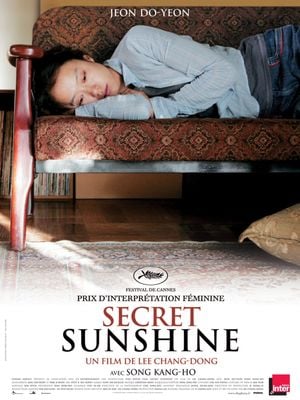"Secret Sunshine" is a film that is difficult to describe as anything other than a complete masterpiece in the history of world cinema. The performances in this movie surpass all expectations; the lead actress delivers a stunning portrayal of a character grappling with a profound internal struggle, enduring the pain of loss while searching for a new meaning to life.
The main character, who has lost her husband and moves to a small town to try to build a new life, appears to be striving for perfection in the eyes of others. However, gradually and as events unfold, the perfect mask she wears begins to crumble, revealing a lost and wandering soul trapped in deep contradictions between the desire for forgiveness and reconciliation and the inability to let go of pain and resentment.
The film highlights this conflict by showing the character’s oscillation between turning to religion at times and seeking liberation from societal constraints at others. She attempts to forgive her son’s murderer but cannot fully commit to this path. This psychological tension has created one of the most complex and iconic characters in cinematic history.
The film is not merely a psychological journey but also a profound meditation on questions of existence, fate, and faith. The scene where she cuts her hair herself is a powerful metaphor for shedding the burdens of the past and embarking on a new life, even if it is fraught with pain. The ending, infused with the innocent laughter and chatter of children, leaves the viewer with an open-ended question about the possibility of overcoming sorrow and continuing life.
Moreover, Lee Chang-dong's direction is rich with visual sensitivity and a meticulously crafted narrative structure, making the film a masterpiece that deeply touches the emotions of its audience. The ability to handle such heavy, human themes with such artistic finesse is what makes "Secret Sunshine" a timeless work truly worthy of acclaim.


